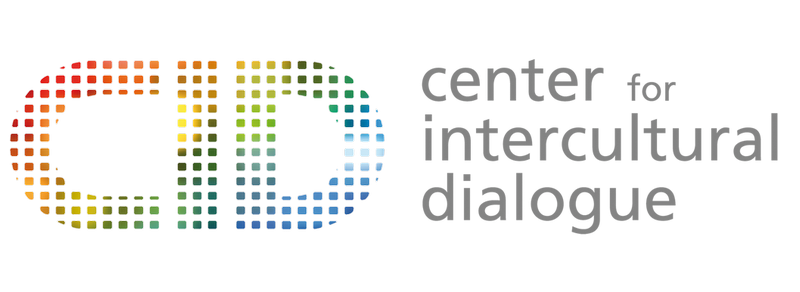Project dates: 16th – 24th of August 2019
Project place: Poznań, Poland
Deadline for applying: 10th of July 2019
ABOUT THE PROJECT
According to European Commission (http://ec.europa.eu/social/main.jsp?catId=1217&langId=en) assuring the recognition of non-formal and informal learning outcomes helps to introduce 1st rule of European social rights pillar, which is: everybody has a right to inclusive education, characterized by a good quality, trainings and lifelong learning in order to get the skills helping in full participation in social life and dealing with changes on the labour market. People develop their skills and competences through their whole life – the recognition of such skills helps to integrate into labour market and into society.
As an organization active in the volunteering field (both local and international) we also recognize the educational and social potential of volunteering projects. Volunteering is an accessible and inclusive activity, spreading common values of the society. It gives a chance for getting necessary work experience, skills development and social inclusion. In order to use its potential, especially in working with youth, it is important to match volunteering work with volunteers needs, so that it is engaging and helps to learn. Moreover the volunteers express often that they gain „a lot” from a volunteering, but they can hardly identify the exact skills and competences they gained. Meanwhile the recognition of such skills and competences is crucial for transferring it to the labour market and presenting it to the potential employer.
In order to change such situation and enable better volunteering projects preparation (with taking into consideration the needs and motivation of the people involved and by identifying potential and competences they offer) we want to deliver a long-term project for organizations working with volunteers.
This project fits in one of the priorities of Erasmus+ Programme, which aims to „overcome the crisis (unemployment) by strengthening and developing education systems and enabling gaining new skills required by employers.” and increasing the recognition of the skills and competences gained through volunteering.
THE AIM
The aim of the project is to increase the quality of volunteering projects by developing competences of coordinators and other people working with volunteers by gaining following skills:
– identifying volunteers’ needs and assigning volunteers to the proper jobs
– identifying volunteers’ motivation and using its potential
– improvement of communication with volunteers (including conflict management)
– improving promotion of volunteering (including learning outcomes) by different channels
– identifying learning potential within the volunteering project
– supporting volunteers’ learning
Due to complexity of the aim, we planned implementing the project within several stages.
DURATION OF THE PROJECT
The project lasts from July 2019 to December 2020.
PROJECT STAGES
STAGE 1 – Training Course (TC1) on volunteering project management for youth workers from different countries, which aims to:
– increase the knowledge on contemporary diagnostic methods for volunteers needs assessment
– develop competences regarding motivation, communication and conflict resolution
– improve the promotion of volunteering with emphasis on competences gained by volunteers (by online tools, sharing good practices etc.)
– increase knowledge on different forms of volunteering
Time and location: August 2019, Poznan (or nearby), Poland
STAGE 2 – implementation of the knowledge and skills gained through TC1 in partners organizations (and countries) – follow up of the STAGE 1
Time and location: September 2019 – March 2020, local communities of partner organizations
STAGE 3 – Training Course (TC2) on learning through volunteering for youth workers from different countries, which aims to:
– overview and learn from the STAGE 2 implementation in different countries
– develop skills of identifying learning potential in volunteering activities
– develop supporting skills for volunteers’ learning process (exchange of monitoring and evaluation tools)
– increase knowledge on evaluation tools for learning through volunteering
Time and location: March 2020, Poznan (or nearby), Poland
STAGE 4 – implementation of knowledge and skills gained through TC2 – follow up of the STAGE 3
Time and location: March 2020 – October 2020
STAGE 5 – evaluation seminar, which aims to share the experiences from follow-up stage and gather material for publication of tried and tested tools for volunteering project management (focusing on cooperation with volunteers and learning through volunteering).
Time and location: November 2020, Poznan (or nearby), Poland.
LEARNING OUTCOMES
After completing all stages of the project participants will be able to identify volunteers’ needs and better assign the tasks to volunteers; they will communicate better and will be able to manage the conflict situations; they will learn more about motivation and they will gain new tools for promotion volunteering projects and learning outcomes. Moreover they will be able to identify skills and competences that volunteering projects has to offer and they will be able to support volunteers’ learning and to help volunteers in recognizing own skills and competences. They will know how to set a clear learning goals and they will know about different forms of volunteering.
Implementation phases and sharing their outcomes will help to develop critical and analytical thinking, reflection skills and create the opportunity to get to know different cultural perspective of the same issue. Participants will also experience creating publication online, which will be afterwards published and distributed.
In the end of the project, all participants will receive Youthpass certificate – document that is registered in EU database as well as the certificate from the hosting organization.
PARTICIPANTS’ PROFILE
- over 18 years old;
-
people working with youth on a daily basis who are involved in volunteering activities;
-
people working with organizations and / or institutions hosting volunteers;
-
volunteers managing the work of other volunteers;
- motivated to implement the tools and skills gained throughout the project in their local communities;
- willing to share their experience with CID.
ACCOMMODATION and FINANCES:
All costs related to accommodation and food will be covered by the hosting organization.
Travel allowance is to 275 euros according to the rules and conditions of Erasmus+ programme. The tickets will be purchased by the hosting organization after expression of travel preference.
PARTICIPATION FEE: NONE
SENDING FEE: 500 MKD

